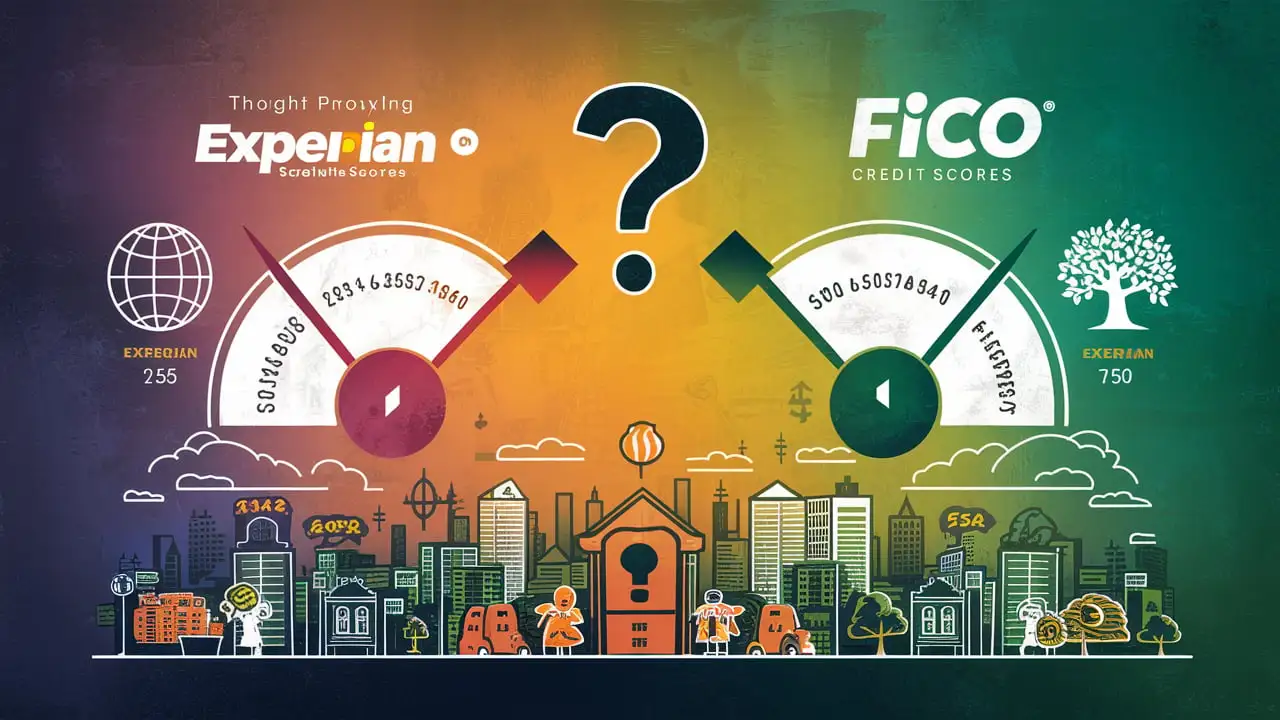-
Posted on: 06 Aug 2024

-
Among the most often used sources of credit ratings in the United States of America are Experian and FICO. Still, which one better indicates a person's creditworthiness? The difference between the Experian and FICO credit scores will be examined in this post to identify which of them is more legitimate and accurate.
Together with Equifax and TransUnion, Experian is one of the three credit reference companies running out of the United States of America. Experian gathers the payment histories, amounts outstanding, credit use rates, credit age, mix of credit accounts, hard credit queries, and other elements defining credit risk. Experian's own branded credit scores—which show customer creditworthiness—are then calculated using this data.
Important to keep in mind is that FICO is a credit score company rather than a credit bureau. FICO generates the general FICO Scores using the original data from the three credit reporting bureaus—including Experian. Applied in 95% of US credit decisions, FICO scores range from 300 to 850; the higher the number, the less credit risk is involved. FICO has data showing about 500 million credit scores right now.
What Is More Precise and Suitable?
In terms of precision and credibility, FICO Scores are commonly held in high esteem by lenders as well as consumers. There are a few key reasons why FICO tends to provide a more precise credit risk assessment: There are a few key reasons why FICO tends to provide a more precise credit risk assessment:
- More predictive algorithms: FICO has been calculating credit scores since 1989, and it possesses a database of consumer scores that is nearly 30 years old. Again, over time, FICO has been able to devise more accurate scoring models that can be back-tested with real consumer credit data embedded into the existing algorithms. Its latest FICO Score versions are based on machine learning to provide better accuracy in its predictions.
- Access to more credit data: While Experian possesses detailed information on around 235+ million consumers/buyers and commercial enterprises in the USA, FICO has credit information on over 500 million consumers from the national credit reporting agencies. It enables FICO to generate credit scores for a user based on the credit report from all the bureaus.
- Focus specifically on credit scores: Whereas Experian also gathers and delivers information for marketing purposes, FICO’s primary mission since its inception has been to develop the most accurate score models for credit risk evaluation by lenders. The production of credit scores that are considered to be the best in the industry is the main business of FICO.
Long-proven track record with lenders: FICO has been providing credit scores to lenders for more than half a century. The fact that FICO Scores are in use in about 90 percent of lending decisions is a testament that even the big banks and other financial institutions consider FICO Scores as accurate and reliable.
Experian Does Have Some Unique Advantages
While FICO Scores are considered more reliable in the lending landscape, Experian's credit data and tailored scores also have some unique qualities: While FICO Scores are considered more reliable in the lending landscape, Experian's credit data and tailored scores also have some unique qualities:
- Extensive identity verification data: FICO is more specific in terms of financial behavior data, whereas Experian collects more personal data on borrowers such as employment history, address history, aliases, and so on. This information helps Experian to support its clients in the lending business by helping them verify the identity of the borrowers and prevent cases of fraud.
- Specialized credit scores: Experian provides different kinds of credit scores depending on certain lending scenarios such as auto, collections, decision analytics as well as insurance scores. They are made relative to the vertical to boost the accuracy of the scores. FICO also has some niche scores but nothing like what Experian has to offer.
Consumer credit monitoring: Experian offers online facilities for individual consumers, including credit report and score tracking through its convenient control panels and notifications. The reports and monitoring services provided by Experian are very extensive; that is why the company is a leader in the consumer industry. FICO has a more limited range of services available to consumers.
The Verdict
Even though Experian possesses a great deal of exclusive value in the form of enormous identity verification data and industry-specific scores, FICO Scores remain the benchmark for evaluating consumer credit risk. FICO Scores have been demonstrated to be the most predictive and accurate when it comes to lending across mortgages, credit cards, auto loans, and more. While Experian is indeed involved in identity management and fraud solutions, and while the company’s credit data products are important, FICO is still the most widely used benchmark among lenders. Again, for most ordinary consumers and lenders, FICO will remain the most credible and efficient measure of creditworthiness.
Improve your credit score now—call (888) 803-7889 for a free consultation!











